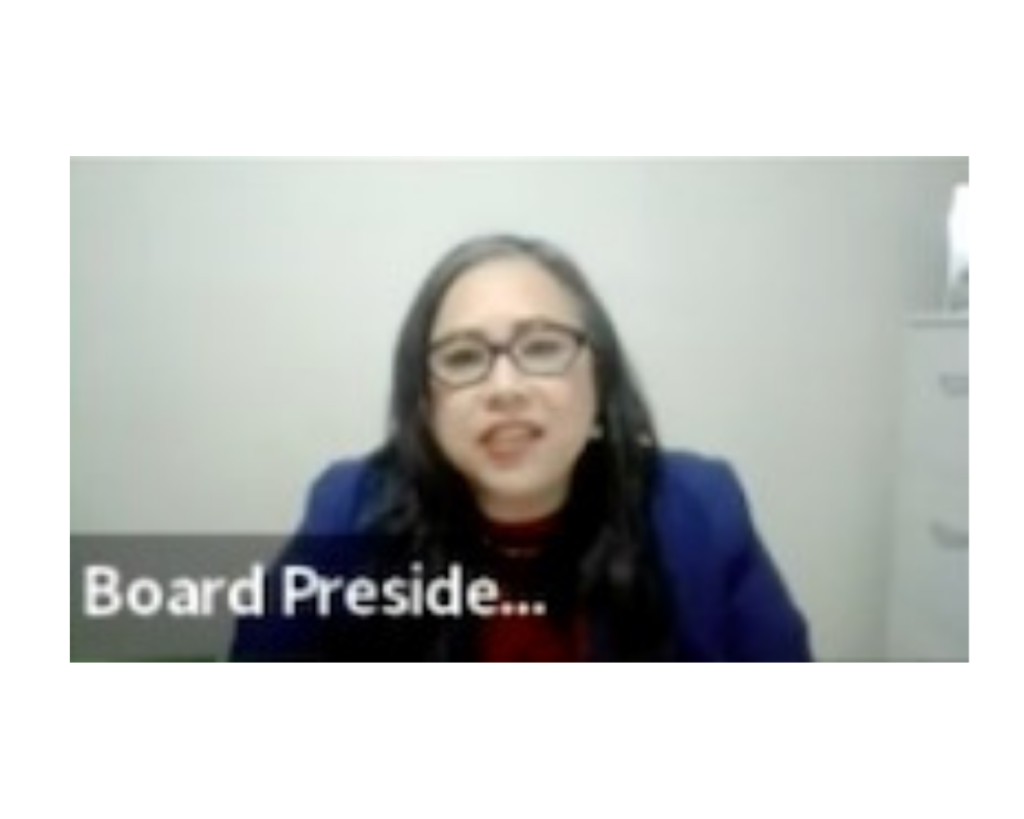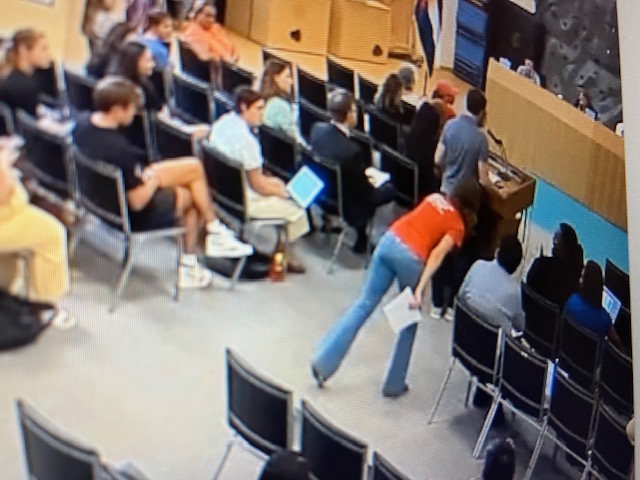Denver Public Schools board members received an earful Tuesday evening from parents and teachers who said they fear a proposed new policy would gut the autonomy of the district’s innovation schools.
Colorado’s Innovation Schools Act “provides a pathway for schools and districts to obtain greater individual school autonomy and managerial flexibility,” the state education department’s website reads.
“This law allows individual schools to waive specific statutes, district policy, certain sections of the teachers’ union collective bargaining agreement,” DPS board president Sóchi Gaytán said Tuesday. “In developing this (policy) that will limit the specific waivers within innovation plans … we are showing the community that we respect the teaching profession.”
But during a virtual board-hosted town hall on Zoom, which close to 200 Southwest and Northeast Denver community members attended, people expressed deep concern over a policy the board is likely to vote on this month.
That policy, introduced by board member Scott Baldermann as the Standard Teacher Rights and Protections, would curtail waivers from the DPS- Denver Classroom Teachers Association collective bargaining agreement that are a key part of innovation schools’ innovation plans.
The district’s 52 innovation schools rely on the waivers Gaytán mentioned to flexibly draft their own calendar, work hours, and salaries. At McAuliffe International School in Northeast Denver, for example, school is in session until 4:15 p.m. so students can complete what would otherwise be homework while still at school.
“Vehemently opposed”
John Worrell, the parent of a McAuliffe student, said he supports what the school’s principal is doing and does not understand why it should be limited.
“I am vehemently opposed to this concept,” Worrell said. “Why are we doing this?”
Several innovation schools also have either four-day weeks or early release days, giving teachers the fifth day or the afternoon for professional development and lesson planning.
Some who attended the town hall asked for concrete data showing that innovation school teachers want what’s being proposed: a maximum 40-hour work week, a uniform school calendar, and uniform teacher salaries.
The board members and moderators, who called the meeting to gather feedback, did not provide any such data.
Parents also said they were also frustrated that the town hall occurred after the district’s School Choice window had closed, because during that process, they chose innovation schools in part because of the very freedoms the new policy would limit.
“Not respectful” of teachers
Lynda van Dyk, who has a child at McAuliffe and a child at Northfield High School (another innovation school in the Northeast), said she thinks standard neighborhood schools are fantastic and necessary, but innovation schools and plans are also vitally important. She and others in attendance also said innovation plans are usually drafted with input from teachers.
“Doesn’t seem to be the least bit respectful to teachers to say ‘We need to make sure you’re all exactly the same,’” van Dyk said.
“There’s multiple different ways to deal with this without gutting innovation schools … You can’t pick and chisel at them without having them fall apart.”
There was not a total lack of support for the policy, though.
Chris Christoff, a teacher at Centennial School, said he understood the policy as a way for innovation school teachers like him to be paid more for the extra hours they tend to work.
“I love doing overnight (field trips), but let me tell you, the exhaustion after a week where you’ve had an overnight in the middle of a teaching week is just horrendous,” Christoff said.
“As much fun as it is, the logistics of doing that are not what I signed up for as a teacher.”
Parents said they agreed that innovation school teachers should be compensated for their extra work, but van Dyk said she was not convinced that the proposed policy is the best way to make that happen.
Northfield High parent and former DPS board member, Rachele Espiritu, serves on the board for the Northeast Denver Innovation Zone (which includes Northfield High, McAuliffe International and McAuliffe Manual middle schools, and the elementary Swigert International School). She said it doesn’t make sense to her why the proposed policy would be implemented after all the innovation schools’ plans had been approved by the district.
Insufficient community input?
Espiritu, Worrell, van Dyk and other parents also expressed concern over the fact that Tuesday’s town hall was just one of two—the other happening this Thursday—so soon before the board’s vote, which Gaytán said will inform the board’s upcoming decision on innovation plan renewals.
“And, we don’t even have our board member here,” Espiritu said, referring to Michelle Quattlebaum, who represents Northeast Denver. “I was under the impression that our board member would be here listening to our thoughts.”
Not all board members attended the town hall in full. Board members Tay Anderson and Scott Esserman left the meeting early to go to Democratic Party caucuses. Quattlebaum did attend, but because the Zoom meeting’s moderators randomly assigned people to “breakout rooms” (separate meetings with fewer people than the main meeting), Espiritu and more than 80 others were placed in a virtual room without Quattlebaum or any other board members.
Additionally, despite note-takers being present, breakout room meetings cannot be recorded like regular Zoom meetings can. This added to people’s concerns that the board would not actually receive the feedback community members tried to give them.
“I kind of feel like the board members have already made up their minds, which is really frustrating and disappointing—that our elected officials are not taking our voice and our input into account in an authentic way,” Espiritu said.
Gaytán said that after the next town hall on Thursday she and the rest of the board will share with each other the feedback they received in their respective breakout rooms and discuss how to move forward with the proposal.




